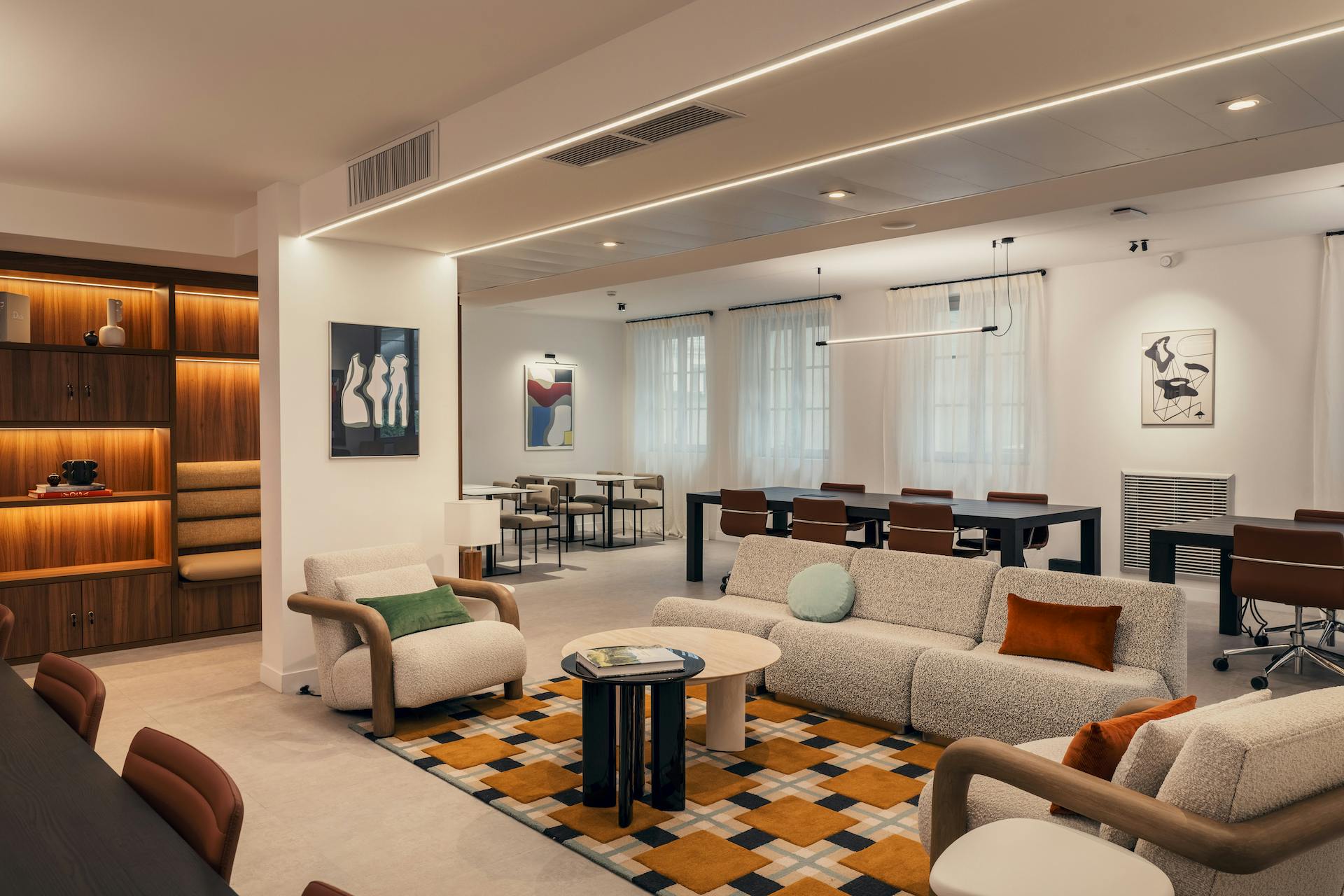

Reunionite: A scourge for French employees' productivity? The Deskeo Study
Meetings, long considered an essential pillar of corporate collaboration, now seem to be losing their appeal among French employees. Four years after COVID-19 and the generalization of hybrid work, these gathering moments are perceived in a new, often less flattering light. Deskeo has examined this phenomenon by conducting a study* on "meeting fatigue." The results are enlightening and raise a crucial question: Are meetings truly beneficial for employee productivity?
Too many meetings, too long
The first finding of the study is that the majority of French employees are overwhelmed by meetings. More than half (56.8%) participate in 1 to 3 meetings per week. A quarter (23.4%) attend 4 to 6 weekly meetings, while 14.7% have more than 6 per week. Only a small group of 5.1% attend fewer than one meeting per week.
COVID-19 has left a lasting impact on work habits, with 73.8% of respondents noting an increase in the number of meetings since the pandemic. In terms of duration, a clear distinction emerges between virtual and in-person meetings. Virtual meetings are shorter: 29.1% last less than 30 minutes and 42.3% between 30 minutes and 1 hour. In contrast, in-person meetings often drag on, frequently exceeding an hour of discussion.
A damaging loss of productivity
The effectiveness of meetings is widely questioned. Only 8.9% of respondents consider them "very effective" and 11.3% "quite effective." In contrast, the majority find them to be of little or no effectiveness. This skepticism translates into a negative perception of their impact on productivity: a large portion of employees feel a moderate to significant decrease in productivity due to meetings.
Kim Le, CMO of Deskeo, explains: "Time spent in meetings can sometimes harm productivity by preventing essential tasks from being accomplished, projects from advancing, or deep thinking from taking place. This loss of time results in a decrease in work quality and increased stress due to the accumulation of unfinished tasks. It's not uncommon for meetings to drag on without any concrete decisions being made, thus becoming sterile discussions rather than moments conducive to implementing an action plan. This highlights the importance of effective leadership to draw the best learnings from each meeting and turn discussions into concrete actions."
Parallel activities during meetings
Unsurprisingly, most employees admit to doing other things during meetings. Common activities include browsing the Internet, scrolling through social media, sending messages, doodling on notebooks, and even checking the weather.
Improvement suggestions
To improve the efficiency of meetings, employees suggest several ideas:
- Reducing the number of meetings,
- Decreasing their duration,
- Using more online collaboration tools,
- Having a clear and precise agenda,
- Making meetings less formal and limiting the number of participants.
Additionally, nearly half of the employees feel insufficiently involved in discussions, highlighting the need for better inclusion in the decision-making process.
Conclusion
Our study highlights a major issue in the modern workplace: the overload of meetings is detrimental to employee productivity and well-being.
To remedy this situation, it is essential to rethink how meetings are organized and conducted. By adopting more efficient practices and reducing the number and duration of meetings, companies can not only improve productivity but also the morale and engagement of their employees.
Deskeo remains at the forefront of these developments and offers solutions tailored to the current needs of businesses and their employees. Don't hesitate to contact us!
*Survey conducted online by Deskeo throughout France via email. 1086 French employees responded during the period from June 03 to June 17, 2024.


Contact Us
We find your Perfect fit!

